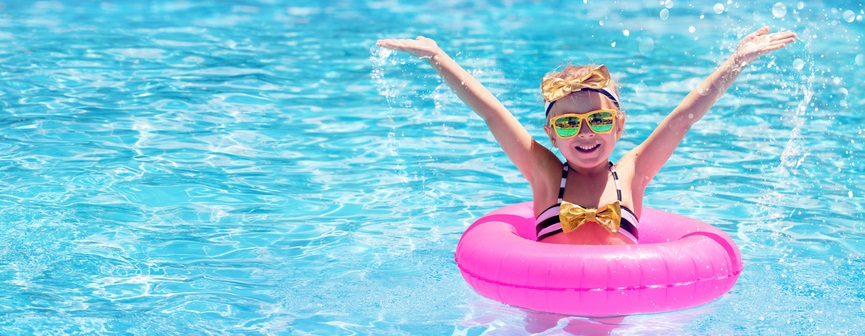Parents, here’s what to know about water safety for kids

Heading to the pool or lake this summer? Be sure safety is on your mind, especially when children are around.
Among children age 15 and under, drowning is the No. 2 leading cause of death. Whenever children are near water, follow these safety rules:
1. Be aware of small bodies of water.
This includes bathtubs, fishponds, ditches, fountains, watering cans – even the bucket you use when you wash the car. Children are drawn to things like these and need constant supervision to be sure they don’t fall in. Make sure you empty containers of water when you’re done using them.
2. Keep a watchful eye.
Children who are swimming – even in a shallow toddler’s pool – should always be watched by an adult, preferably one who knows CPR. Be within arm’s length, providing “touch supervision” whenever infants, toddlers or young children are in or around water. Empty and put away inflatable pools after each play session.
3. Enforce safety rules.
No running near the pool and no pushing others underwater.
4. Don’t forget life jackets.
A life jacket fits properly if you can’t lift it over a child’s head after it’s been fastened. For children younger than 5, particularly non-swimmers, life jackets should have a flotation collar to keep the head upright and the face out of the water.
Don’t allow your child to use inflatable toys or mattresses in place of a life jacket. These toys may deflate suddenly, or your child may slip off into water that is too deep.
5. Safety in the backyard.
Backyard swimming pools (including large, inflatable above-ground pools) should be completely surrounded by a fence that keeps children out without adult supervision. Keep toys out of the pool area when not in use so children are not tempted to enter without supervision.
If your pool has a cover, remove it completely before children go swimming. Also, never allow children to walk on the pool cover.
6. Avoid hot tubs.
Spas and hot tubs are dangerous for young children, who can easily drown or become overheated in them.
7. Adults, stay away from alcohol.
Don’t drink alcohol when you are swimming or supervising. It presents a danger for you as well as for any children you might be supervising.
8. Eliminate distractions.
Talking on the phone, working on the computer and other tasks need to wait until children are out of the water.




